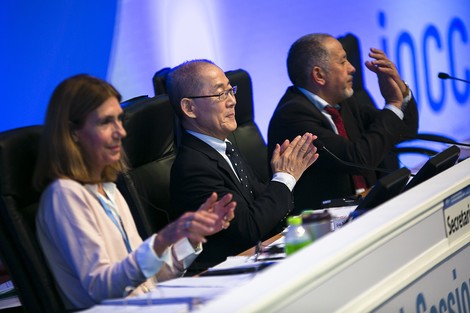Your podcast discovery platform
Curious minds select the most fascinating podcasts from around the world. Discover hand-piqd audio recommendations on your favorite topics.

piqer for: Climate and Environment Global finds Globalization and politics
I'm a freelance journalist, currently based in Madrid. I used to be a News Producer at CNBC in London before, but I thought a little bit more sun might do me good. Now I write for several news organizations, covering a range of topics, from Spanish politics and human rights for Deutsche Welle to climate change for La Marea.
Everything You Need To Know About The IPCC's Special Report
On Monday, the Intergovernmental Panel on Climate Change (IPCC) published a special report on the impacts of climate change for a warming of 1.5ºC over pre-industrial levels, and how to avoid breaching that threshold. The report, which paints a rather stark picture but leaves a (narrow) window open to hope, has been hailed as a historic milestone, and spurred media, scientific and political reactions all over the world. You can expect to see the report, also known as SR15, all over the place for the next few years (or decades). All in all, it's a need-to-know document.
But reading and understanding a long, often technical, scientific paper that spans several disciplines and relies on previous knowledge can be (and often is) a daunting task. The IPCC also released a 30-page policy briefing that is quite good, but it's still not everyone's cup of tea. Luckily, the Carbon Brief team has prepared another of its popular Q&A's for the layman, making the information available to everyone. It's so good that one of the authors of the original report has recommended reading it instead of the document itself!
The Q&A goes over 13 questions, including not only the report's content (How far away is 1.5C of warming? What would it take to limit warming to 1.5C?...) but also its context (Why did the IPCC produce this special report? What has the reaction been? What’s next?...). The language is serious, but clear and accessible, and the article is peppered with helpful diagrams, graphs and videos. As usual, there's also a plethora of links for further reading.
It's quite a long read, so I'd recommend to bookmark it and take it easy. It can also come in handy in the future.
Let me end by stating that I'd like to stop recommending articles from Carbon Brief, but they're making it really hard. The British website is on a roll, and renewing its deserved place as one of the global reference outlets for climate change news and analysis.
